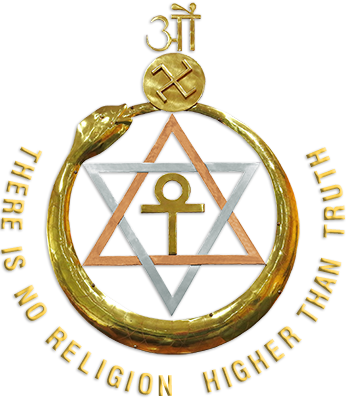Articles & Texts
Resources
Further studies:
An Introduction to Theosophy, Divine Wisdom, or the Wisdom of the Gods | Theosophical Society
Select Download above
Opinion and Belief Within the Theosophical Society
Annie Besant
EXCERPTED FROM ''INVESTIGATIONS INTO THE SUPERPHYSICAL''
The Theosophist August 1912 Page 743 September 1912 Page 893 and
Adyar Pamphlet No. 36,
Theosophical Publishing House, Adyar, Madras, 1913.
Before dealing with investigations, let me make clear my own position with regard to all questions of opinion and belief within the Theosophical Society itself. Some of our members echo the statements of one seer or another, and seem to consider that such a statement ought to preclude further discussion. But no one in the TS has any authority to lay down what people shall think, or not think, on any subject. We are not in the position of an orthodox Church, which has certain definite articles of faith, which imposes certain definite creeds in which all faithful members are bound to believe. The only point which we must accept is Universal Brotherhood, and even as to that we may differ in our definition of it. Outside that, we are at perfect liberty to form our own opinions on every subject; and the reason of that policy is clear and an exceedingly good one. No intellectual opinion is worth the holding unless it is obtained by the individual effort of the person who holds that opinion. It is far healthier to exercise our intelligence, even if we come to a wrong conclusion and form an inaccurate opinion, than simply, like parrots, to echo what other people say, and so put out of all possibility intellectual development.
In fact, differences of opinion among the members ought to be regarded as safeguards to the Society rather than as menaces, for our one greater danger, as HPB recognised, is the danger of getting into a groove, and so becoming fossilised in the forms of belief that many of us hold today; this will make it difficult for people in the future to shake off these forms, and thus will involve posterity in the same troubles which so many of us have experienced with regard to the teachings among which we were born. The Society is intended, always has been intended, to be a living body and not a fossil, and a living body grows and develops, adapting itself to new conditions; and if it be a body which is spiritually alive, it should be gaining continually a deeper and fuller view of truth. It is absurd for us to pretend, at our present stage of evolution, that we have arrived at the limit of the knowledge which it is possible for men to obtain. It is absurd for us to say that the particular form into which we throw our beliefs at this moment is the form which is to continue for ever after us, and to be accepted by those who follow us in time. All of us who study deeply must be fully aware that our conceptions of truth are continually deepening and widening, that, as we might reasonably expect, we find new avenues opening up before us; and nothing could be more fatal to a Society like ours than to hallmark as true special forms of belief, and then look askance at anyone challenging them, trying to impose these upon those who will come after us. If the Society is to live far into the future, as I believe it will, then we must be prepared to recognise now, quite frankly and freely, that our knowledge is fragmentary, that it is partial, that it is liable to very great modifications as we learn more and understand better; and especially is this true of everything which goes under the name of investigation.
Even if we take a broad truth, like that of reincarnation, which is perennial, even then it is unwise to insist upon putting it into one particular form, and to treat it as though it could have no other. We ought to recognise that this vital doctrine has been taught in many forms in the past, and is likely to be taught in many other forms in the future. The one important thing to recognise is the evolution of man, the inner Man who has continually grown and is capable of attaining perfection; but it is certain that in the course of time we shall gain much knowledge on all subjects that at present we do not possess, and that even with regard to fundamental truths, there ought to be fullest discussion, the freest pointing out of weak places in the arguments with which they are supported; there ought to be a continual attempt to add to the amount of the truth which we already possess, for if one thing becomes clearer than another to those who are opening up in themselves the finer faculties of man, it is that all our conceptions are so immensely below the truth, so much narrower than the truth, that they seem like the mere prattlings of children compared with the arguments of philosophers. Hence it is wise to be humble as well as studious, and always to be willing to hold the form with a comparatively loose hand, while clinging to the essence of that which is inspiring and really nutritious to the spiritual life.
Annie Besant (1 October 1847 – 20 September 1933). Elected as the second President of the Theosophical Society in 1907 and served in that office until her death.



